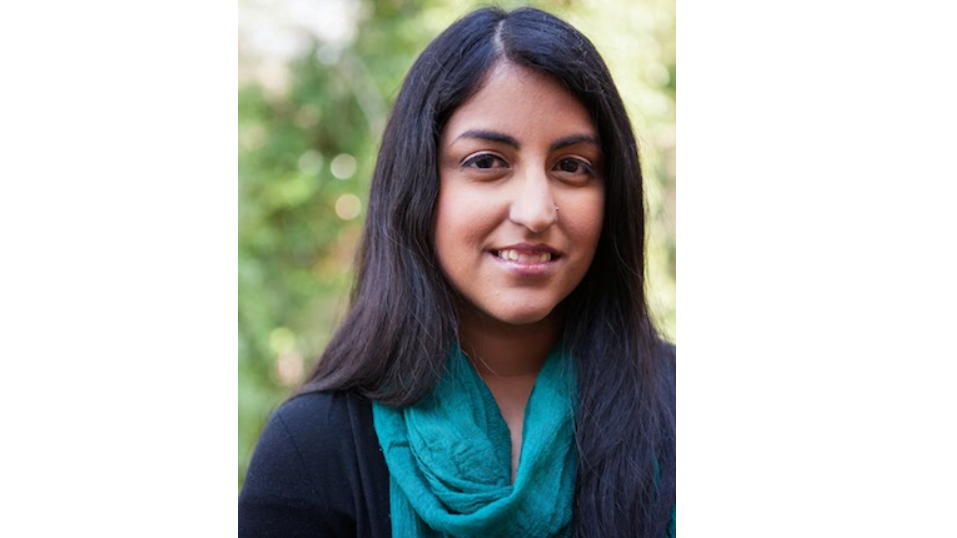Junior year of high school, I considered myself a fortunate aberration, evading the often-inevitable encounters of what my parents deemed the teenage “three D’s”: drinking, drugs, and dating. Surrounded by a diverse, yet value-oriented group of friends, we ceremoniously spent weekend nights playing Hasbro board games, eating discount pies on docks, or consuming syrupy drinks at one of the many local cafes. As the year progressed, our friendships shifted accordingly, and each of us succumbed to one or more of the dreaded D’s. In my case, it was dating.
As she was a close neighbor, I would often drive her home from our gatherings, filling awkward silences with criticisms of the new Beirut album or bust out in the well-received South Asian accent. Her repose and moral codes drew me in, and so, after one of these jaunts, followed a graceless fastening of the hands. Our time together seemed effortless, until the dreaded conversation regarding our respective families emerged.
“So what about your family? You speak so highly of them! When can I meet them?”
Reality’s fierce emissary delivered a blow. “What do you mean I can’t meet them?! You mean this is going to be a secret?” Exactly! A secret! So, we frolicked around town with our hoods up, pretending no one else could see. “If only they knew me,” she would insist, but I knew no compromise could be made. Our discrete relationship worked for a while, that is, until I was caught and exposed by an auntie. That evening, petrified of the repercussions, I returned home to multiple pairs of judging eyes. The ultimatum came: it’s the Amriki larki (American girl), or us and Islam.
Those last few words rang in my head. Somehow, whatever the Amriki larki ideologically represented was antithetical to Islam. The dichotomy lectured against in Friday sermons, evoking an ill-perceived separation between Islam and America, was the exact basis for my community’s opposition to my new relationship. In fact, a local religious leader told my parents to disown me, for there was no way to reconcile dating an Amriki larki with Islam. In this way, I was reduced to a monolithic, superseding identification, one that as American-Muslims we have fought vehemently against since the post-9/11 media onslaught. We’re not just Muslims. We’re Americans, Pakistanis, Arabs, African-Americans, Indonesian, doctors, lawyers, social workers, professors, athletes, soldiers, neighbors, mothers, fathers, sons, and daughters. Yet, all of a sudden, I was no longer a university-bound aspiring writer, Ramadan family cook, hipster Indie-rock enthusiast, or coffee zealot: I was just a Muslim. It did not matter how I engaged with Islam or what it meant for me to be Muslim, but more importantly, how those around me defined these terms and imposed them. And so, citing these paradoxes, I distanced myself from my community, and essentially, chose the Amriki larki.
Such a decision resulted in a tumultuous, guilt-ridden few years with my family, and also hindered my spirituality. In given the choice between the red or blue pill, I accepted that capsules with different shades or doses were mere placebos. In accordance with what I was taught, that correct actions dictate one’s faith and allegiance to God, I was embarrassed to tell others I was Muslim, and subsequently to confront God. I stopped praying, fasting, and reading scripture, for I figured, God would hate me regardless.
A few years later, a watershed moment occurred as I met up with a few friends and their acquaintances at a music festival. Waiting for the next set, one of the acquaintances derided me about my background: “So your name’s Mohammad, you’re at a music festival with plenty of drugs and sweaty bodies grinding up on one another. You must not be a legit Muslim?” So, not only did the local Muslim community consider my avocations un-Islamic, but also the non-Muslim, liberal, university-educated youth?
This time, I decided to take independent initiative. I feverishly started reading histories, biographies, anthologies, and works on theology regarding the formative and contemporary ages of Islam. I learned about the early debates between the various theological factions and the plurality of traditions and definitions of Islam. Slowly, the cookie began to crumble about the monolithic Muslim I believed I had to live up to. With all this in mind, the most consequential lesson came during my summer abroad in Istanbul, Turkey. I interacted with metal-head, tattooed musicians, politically active LGBTQ teens, conservative supporters of the Islamist AKP, and ironclad secular followers of the country’s founder Kemal Ataturk. Most striking was how each of these groups firmly defended their identity as Muslims, yet engaged with the religion and its tenets in distinct ways. As my Turkish friend Seyfullah claimed, “Yeah, somebody can tell you how to be Muslim, but at the end of the day, we’re going to do what we feel agrees with our own definition of Islam. Of course we’re other things like Turks, students, artists, advocates, whatever, and we’re Muslim.”
As most teenage romances fizzle out, so did this one with the Amriki larki. We recognized our different career and personal aspirations, and amicably called it quits. In my case, the often-put-off teenage relationship was not purely carnal and premature, yet instrumental in reconstructing my religious and cultural identity, as well as my relationship to God. I was able break the routine of religious rites, and challenge the schizophrenia between home and school many of us teenagers face. I was able to make new spaces to express and construct my Muslim identity, taking advantage of the hyphenated forms America seems to be full of. But most importantly, I realized there is no norm to be an aberration of.
(Photo Credit: Seyed Mostafa Zamani)




